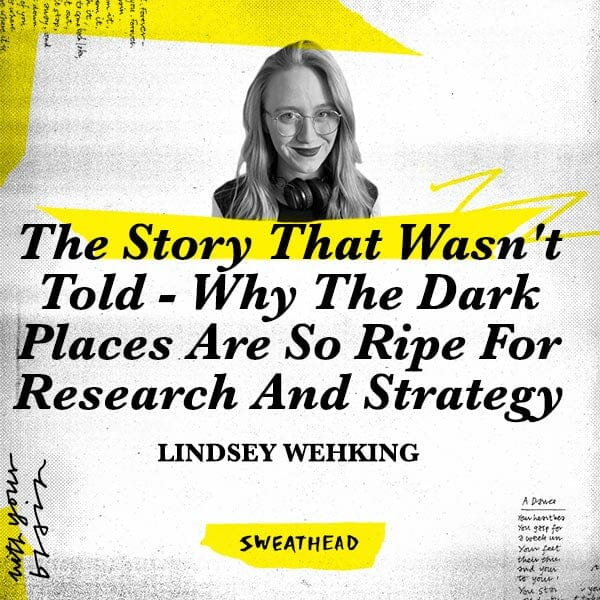Why is it so uncomfortable for marketers and agencies to delve into dark emotions?
Lindsey Wehking is an Associate Director of Strategy at Nonfiction Research. She recently led research into the way people use music playlists on Spotify to identify and process dark emotions. Nonfiction published this research under the title “America’s Secret Playlist Report”. We discuss how the team approached this research and what they found. Hint: dark places aren’t bad places.
What I took out of this chat is this:
- “Negative” emotions are useful and need dealing with; they need labels and names if we’re to address them.
- Vivid language disappears somewhere between what we say and what people tell us and what strategists put in their formal documents.
- When you’re conducting a research project, it helps to have breathing room between an initial qualitative phase and the quantitative phase so you can work out what you’re really looking to put numbers to.
- “The Story That Wasn’t Told”–this is what Lindsey focuses on in her research. Do enough strategists ask themselves for the untold story before they write creative briefs?
- People want to go into dark places with others because our public lives focus the light on heroic acts by heroic people as if those heroic acts are eternal and infinite.
Listen to this episode here:
You can find Lindsey here: @sup_creep.
You can find Nonfiction Research here.
Don’t forget to subscribe to the podcast and, please, leave a kind rating on iTunes.
